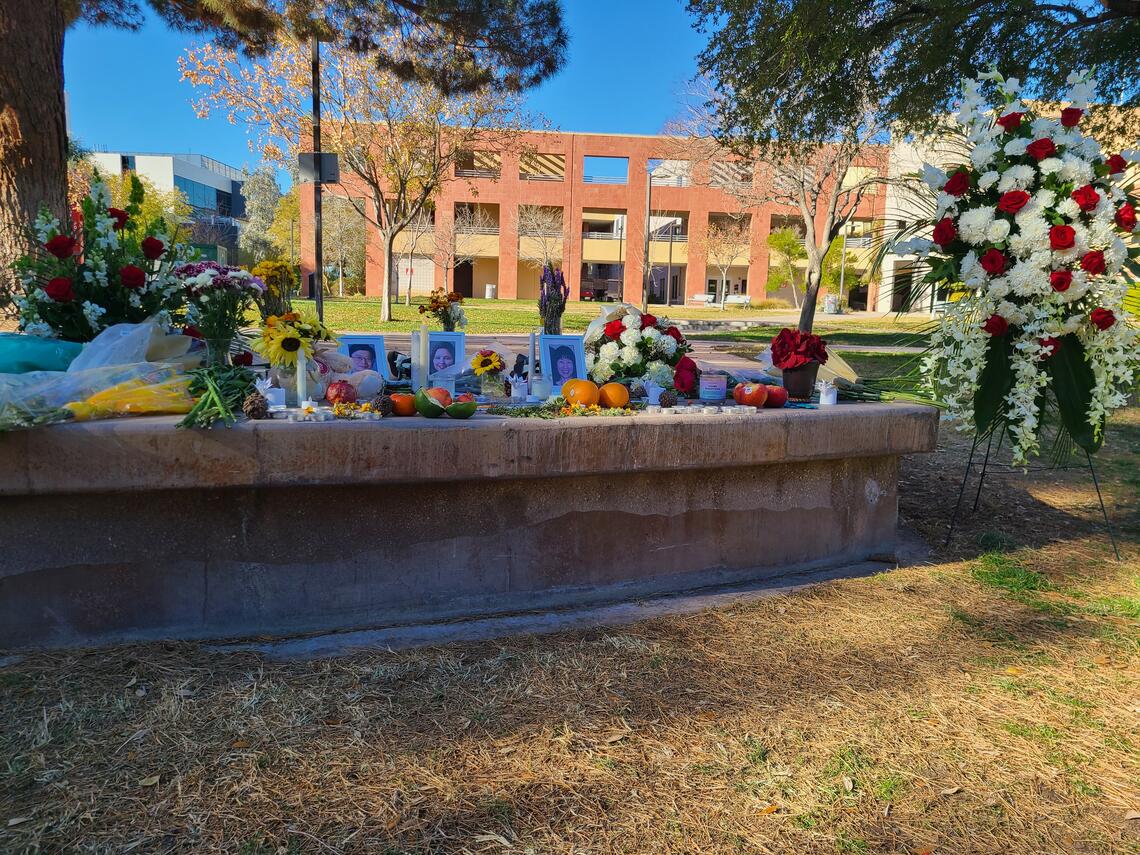
For my last post of calendar 2023, I had planned on a retrospective of the year, looking at some of the issues brought to the Ombuds Office and discussing options for resolving them.
Then December 6 happened.
President Whitfield has called it an “unfathomable tragedy,” which is apt. Three members of our community--Dr. Jerry Cha-Jan Chang, Dr. Patricia Navarro Velez, and Dr. Naoko Takemaru—are gone. They leave a void that can’t be filled. A fourth is injured.
I have just gotten back from the vigil honoring the memories of our three colleagues, and it is hard to think of anything that could enlarge on what was said there. But I would like to talk a little about what this tragedy can do to us, and what we can’t let it do.
At times like this, we may feel the temptation to retreat inwards, since we don’t know the right thing to say. There isn’t anyone in the UNLV community who isn’t affected by those senseless murders, or the terrifying minutes and hours that followed them. And I don’t think any of us know what the right thing to say is. I sure don’t.
But I do know what the wrong thing to say is: silence. Appreciating that we all may process grief and loss in different ways, there’s nothing wrong with reaching out and just being there for each other. One of the challenges in my ombuds work is that, when people are facing seemingly intractable problems, there is rarely a cluster of words that, if strung together in just the right order with just the right inflection, can make things immediately better for them. That’s okay, though, because usually people aren’t really looking for someone to magically make things better (though that might be appealing), but rather someone who will help them sort out what decisions they’re going to make that will improve their situation.
Which is a longer way than I intended to say that we shouldn’t get hung up worrying about the right thing to say, but that we should just be ready to ask how others are doing.
Because I see an awful fact. A shooter took three wonderful, vibrant people from us, their families, and their friends. We can’t let him take our community from us as well. That would make this tragedy even harder to bear.
I am looking forward to Commencement next week, not just because it is a chance to reflect on the achievements of our graduates, but because it will be a chance to see so many members of the UNLV community together.
Looking at the strength and resilience at the vigil today, I feel confident that, together, we will get through this. But I won’t lie and pretend that it will be easy. In general, when people are stressed, they rarely communicate more effectively. Quite the opposite—they may say or write things that, while satisfying in the moment, complicate and frustrate their relationships. It goes without saying that everyone on campus will be carrying some, and maybe a great deal, more stress. So we might want to consider giving others—and ourselves—an extra measure of grace.
At the vigil, several of the speakers highlighted the theme that through grief can come growth. We will see that growth in the weeks ahead, as more folks return to campus and as next semester begins. And though it will not always be an easy process, we will have each other—our community—to draw upon.
We can think of our community as being divided into three parts—those who seek knowledge, those who spread knowledge, and those who support them. Each function is necessary, and needs the other two to fulfill its promise. Ideally, we all can move through each of those roles as we live, learn, and work together. And we shouldn’t forget one vital truth: no matter what our specifically defined role in that triad, each of us is essential.
Still, even in a community bound together by mutual need and appreciation, there are complications. As the Ombuds Office’s past reports have made clear, communication—both between supervisors and employees and among peers—is the top issue, by far, that people bring. And, according to my ombuds colleagues around the world, this isn’t unique to UNLV, higher education, or the United States. It might be that people aren’t genetically wired to operate in large hierarchical organizations, or that they inevitably don’t speak or listen as carefully as they should. Giving others—and, again, ourselves—some grace when it comes to interpersonal communication over the new few months might help prevent small slights from blossoming into major arguments.
UNLV is offering many excellent resources for helping people as individuals work through their loss, grief, and stress. If your group could benefit from a shared workshop or facilitation on a variety of communication and conflict resolution topics, including just talking about where you are and where you would like to be, I encourage you to reach out to schedule something. We have worked with groups as small as five and as large as 300. We can facilitate directed conversations on specific topics, or just give participants a chance to learn and experiment with new conflict resolution concepts.
And, of course, we are always open for one-on-one consultations. If you are having an issue and are uncertain where to go, our office is an excellent zero-barrier first stop. There really is no issue too big or too small. You have nothing to lose and quite a bit to gain.
If you would like to talk off-the-record and confidentially about any work- or campus-related concern, please make an appointment with the Ombuds. Our door is always open.
David G. Schwartz
UNLV Ombuds